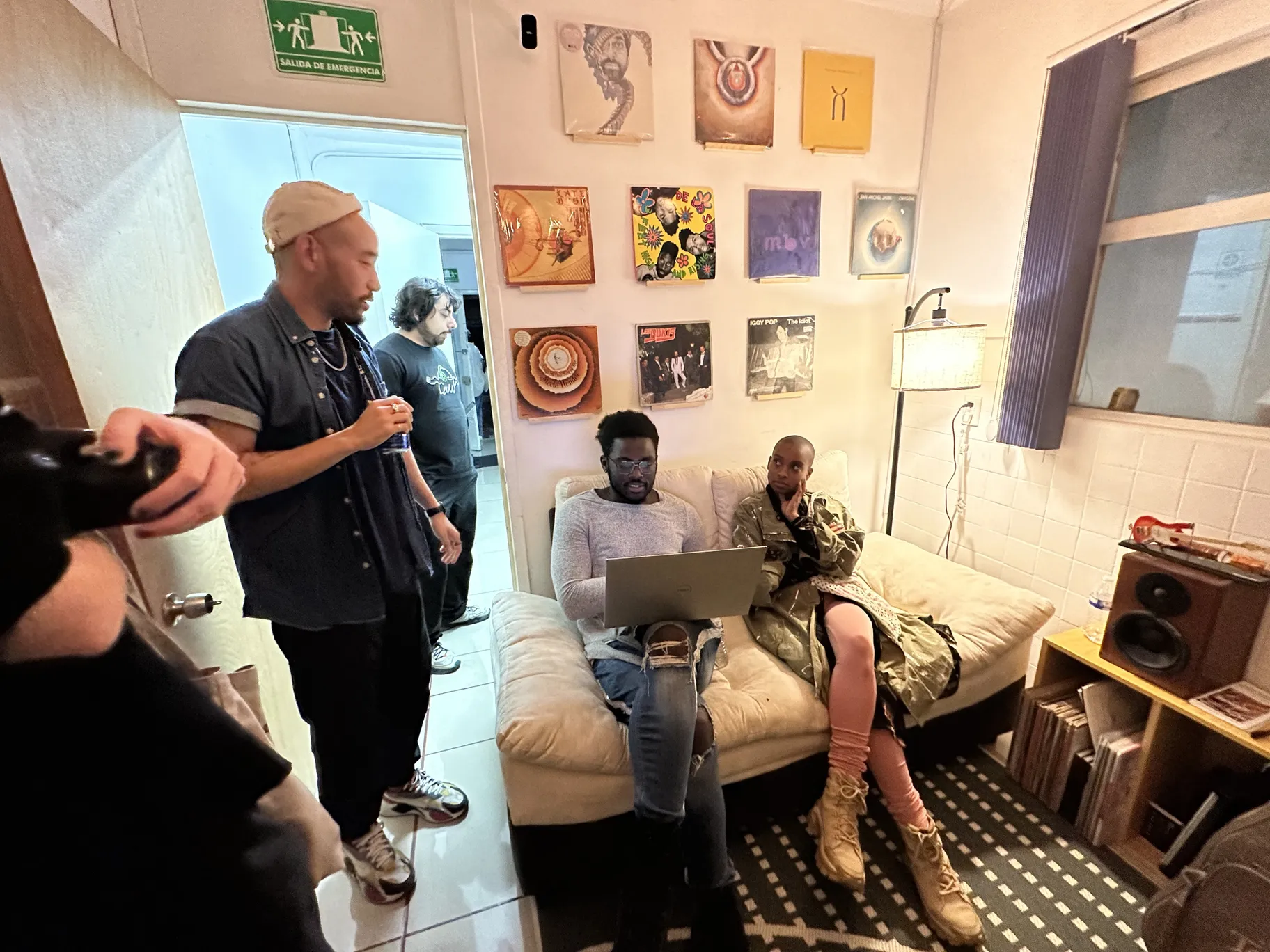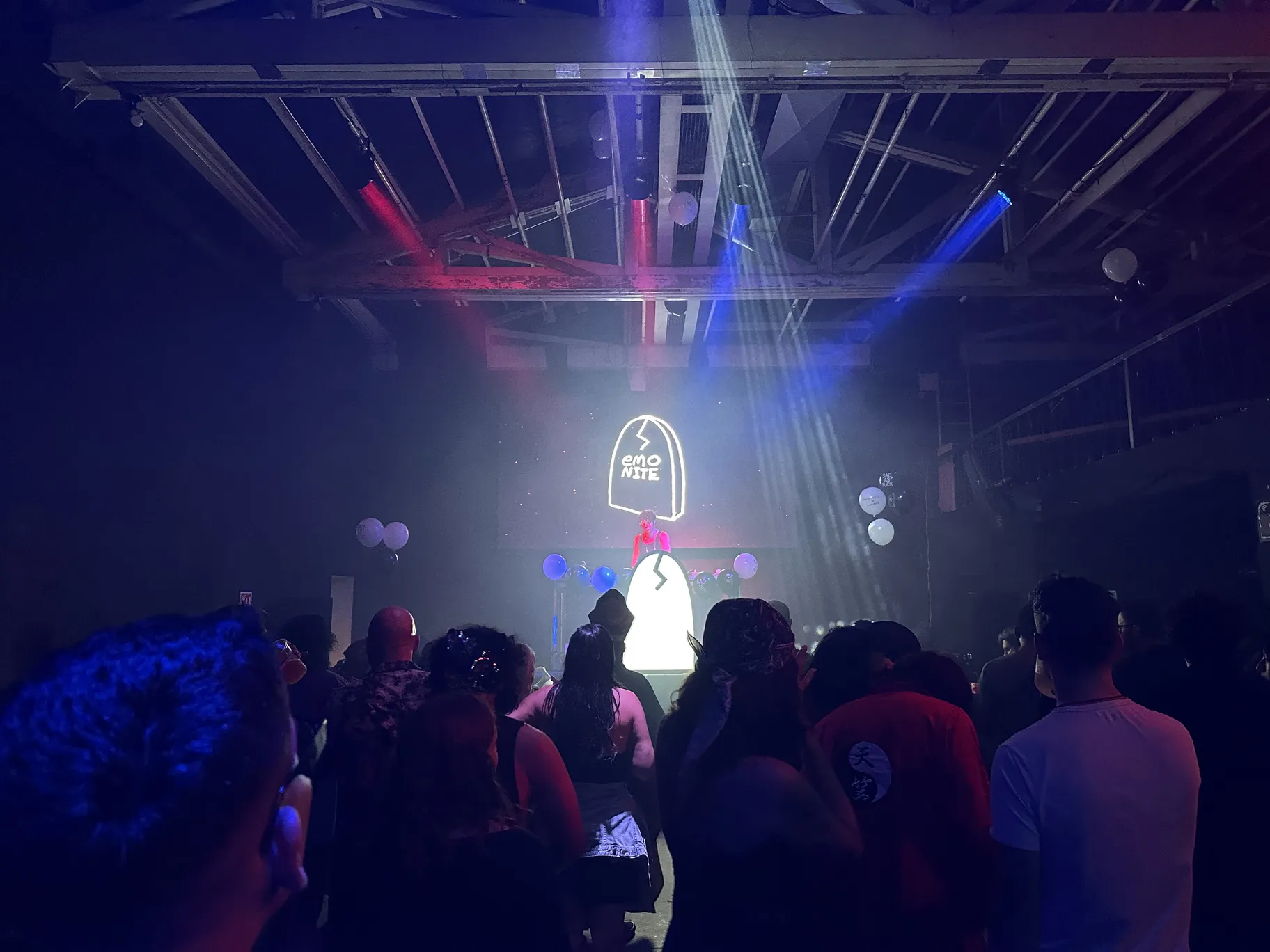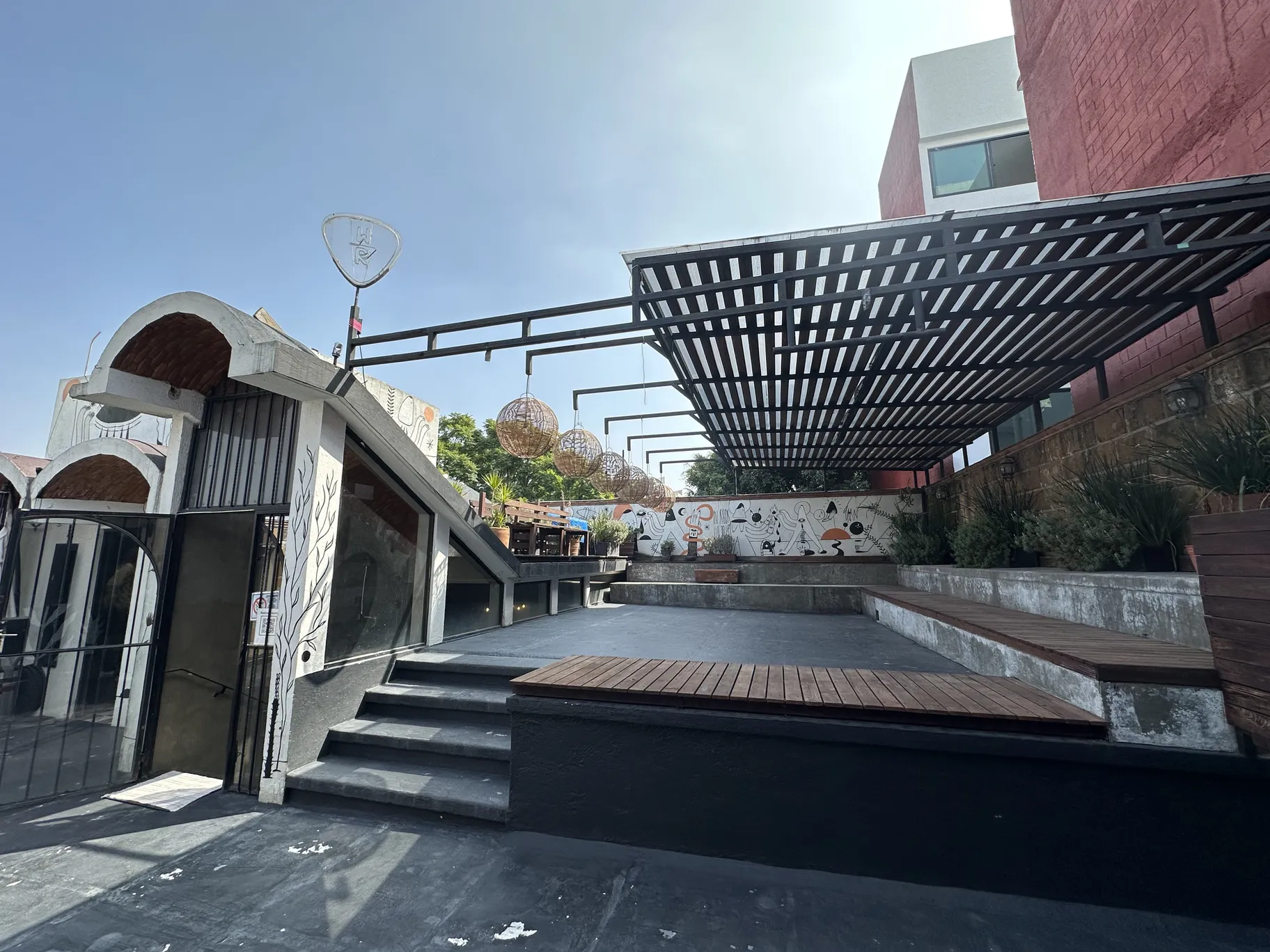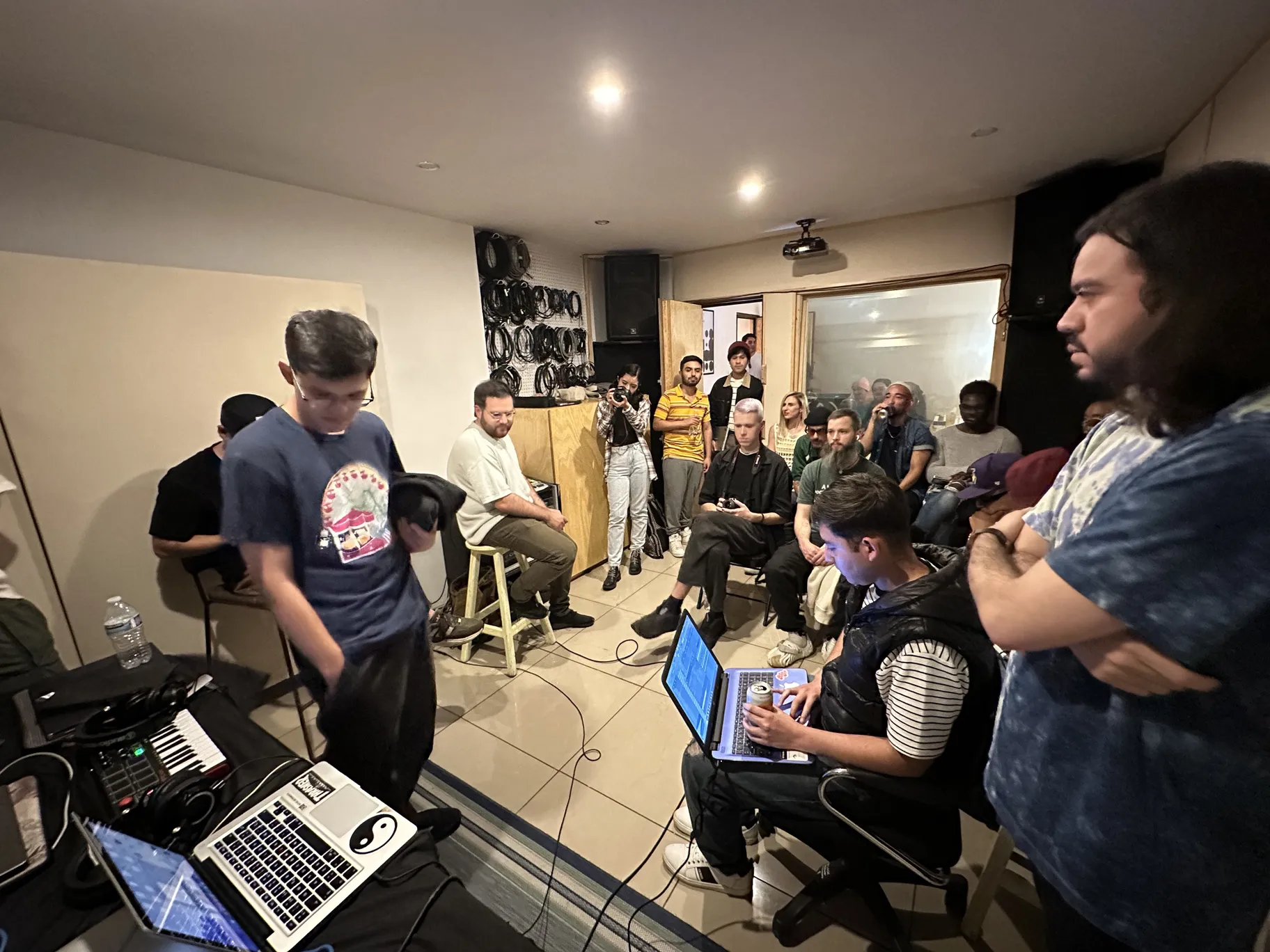Long considered the capital of the Latin music world, Mexico City is now a hotspot for singers, songwriters, producers, and instrumentalists from around the globe. They’re drawn to the vibrant culture, quality of life, and relative affordability compared to places like LA.
Sound alchemist and Angeleno Victory Jones recently spent a month there as part of an artist residency with MMerging Strategies and was blown away.
“Mexico City feels like a playground for artists right now — a bunch of amazing, really insanely beautiful prodigy children coming to this epicenter and being like, ‘Okay, let’s play,’” Jones tells KCRW.
But affordable rent and the presence of artists can also mean the specter of gentrification, concerns about displacement, and questions around who gets to enjoy the good life. It can be difficult to find a balance between the benefits and downsides of migration to this ancient city.
For the newcomers, the street life and artistic energy is undeniably magnetic.
“I got to Mexico City, and within five minutes, I was like, ‘Oh, I'm going to be here,’” recalls former Angeleno musician JP Roney who relocated to Mexico full time. “I just felt myself full of energy as opposed to constantly trying to battle for every scrap of serotonin in my brain to keep moving forward in LA.”
Julian Roy, another LA expat musician, draws a similar contrast between his former home and Mexico City. “When I come down here, it feels more of a hug into the [music] industry rather than trying to break down a concrete wall.”

Expat artists are drawn to Mexico City’s vibrant culture, quality of life, and relative affordability compared to places like LA. Photo credit: Zeke Reed
Mexico has always been home to a rich musical tradition — from salsa and mariachi to corridos, banda, and Norteño. The recent influx of artists means a range of new sounds.
“It’s a very good thing for the culture here right now,” says Manuel Ferraz, a Venezuelan funk and soul musician who has lived in Mexico City for the last seven years. As the self-proclaimed “ambassador of Latin boogie,” Ferraz is excited that less traditional Latin musicians like himself are finally getting more recognition. “I love reggaeton. I love cumbia,” he explains, “but … we can make other genres.”
As different styles find a niche here, genre-specific parties are popping up all over — playing everything from afrobeat and hip-hop to techno, disco, and pop-punk.

Emo Night is just one of many local genre-specific parties in Mexico City. Photo credit: Zeke Reed.
But some locals say the good energy comes at a cost – largely borne by native Mexicans. Affluent neighborhoods like Roma and Condesa have become major destinations for foreign remote workers, and all that migration is shifting the city’s character.
“We have these digital nomads being like, ‘Oh, I can just come here. It's so cheap here. Oh my God,’” explains Tijuana-born booking agent, talent buyer, and DJ Fidel Martinez. “Yeah, it's cheap for you, but not for us.”
The average rent in Condesa has gone up 60% in the last three years – and more than half of Mexico City’s residents report struggling to pay for housing. Many folks have had to move far outside of the city center.
“I was walking down Condesa the other day, I didn't hear a single fucking person speaking Spanish,” says Martinez. “It's like, damn, where are my people? Are my people just the waiters, just the bartenders, just the chefs, just the staff? It does mess with me a bit where I feel like I'm in LA.”
Beyond the financial privileges, foreign artists also sometimes get a leg up when booking gigs and getting attention from gatekeepers. According to artist manager and former Angeleno Max Stern, the result is that some local artists have to get noticed abroad before they get credibility at home.
“It's all about the optics of it,” Stern says. “It has to do with the impression of somebody being cool in LA, and that means that they can be a massive superstar in a validated way in Mexico, in Latin America.”
Expat artists are sensitive to their potential impact. Julian Roy recalls an incident with some of his local friends who had lived in the same apartment for several years, before their landlord suddenly evicted them with two weeks' notice. “[The landlord] didn't tell them why, but they know an American came in and [is] paying double the rent for the nice place in the nice area,” says Roy.
While the changes in Mexico City go beyond the presence of expats to broader decisions made by local politicians, land owners, and multinational corporations — individual actions still matter. Julian Roy says, “I’m staying far outside of any of the more foreigner areas, and speaking Spanish to every single person I meet. I'm doing my best to not be an ignorant American.”
There are other tangible ways that expat artists are working to support locals, including sharing resources, connections, and expertise. For example, JP Roney intends to partially operate his new state-of-the-art studio as a philanthropy. “My main goal is to elevate the wonderful creative culture that is in Mexico,” he says.

JP Roney wants to use his new studio and event space called Casa de Copas to support local artists. Photo credit: Zeke Reed.
Another group of local musicians is hosting a monthly gathering of expats and locals called Ritmos y Rimas (Rhythms and Rhymes). Co-founder, dance music producer, and former Angeleno Pat Lok explains, “Basically, it's a producer challenge, but you don't have to be a producer to show up. People can record whatever they want, and we come back and just share it.”
On a recent evening, the challenge was to make a beat in under two hours using samples from the theme songs to the movies Jaws and Halloween. As the event unfolded, conversations naturally flowed between English and Spanish as folks took turns sharing their songs and tips on how to navigate the music industry.

Expats and local artists mix and mingle during Ritmos y Rimas. Photo credit: Zeke Reed.
Perhaps there’s no uncomplicated way to navigate first-world privilege in a place like Mexico, but forging genuine artistic connections and materially supporting local musicians is a start. “I think it's important to be the change that you want to see, and to build positive groups, networks, and structures — to be a net positive rather than a drain,” says Lok.
On that note, if you want to hear more of the eclectic music coming out of Mexico City, check out KCRW’s program Global Beat Mexico with Raul Campos.
